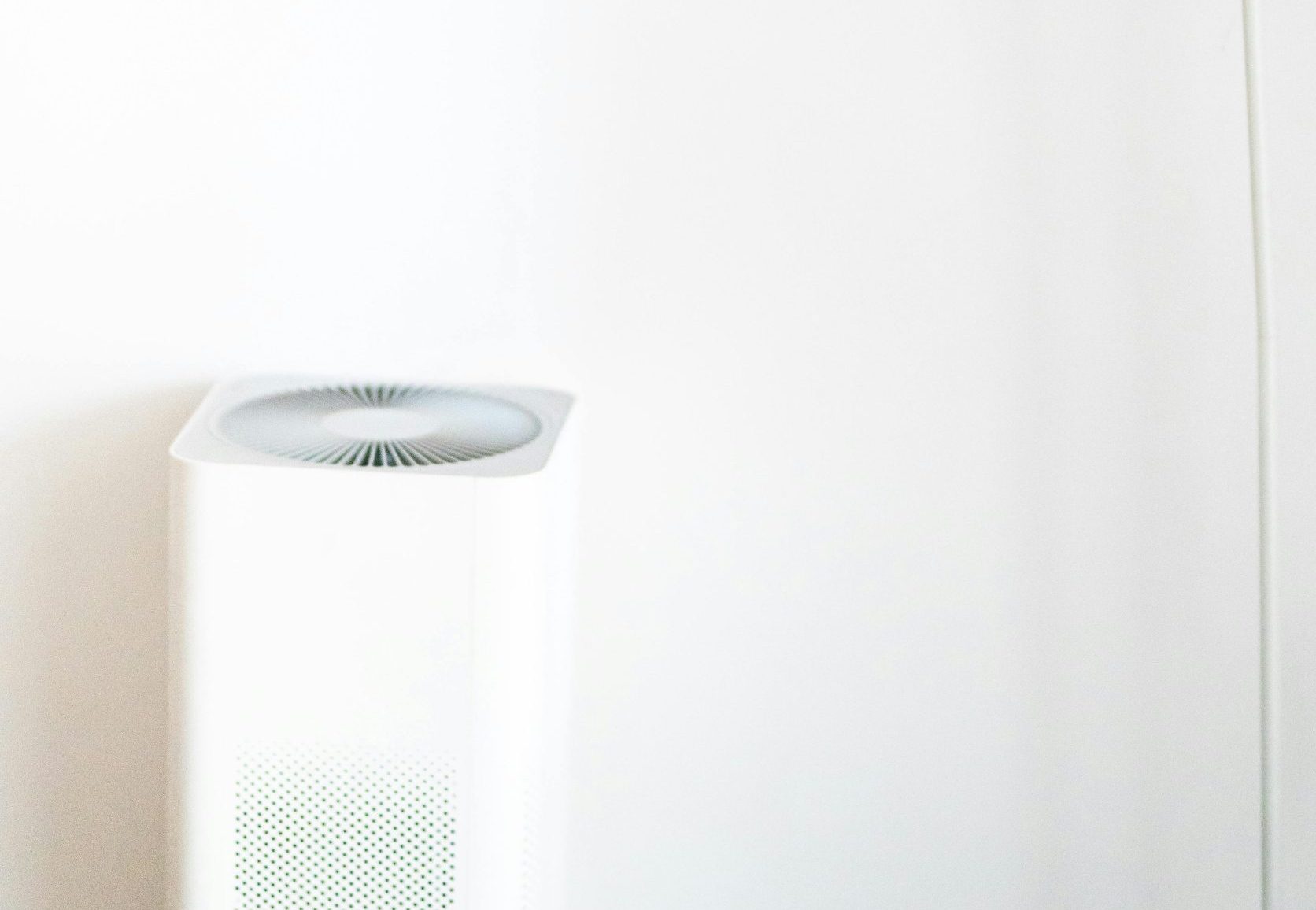What Are the Most Effective Home Air Purification Systems for Urban Areas?

As urbanization continues to grow, so does the concern for indoor air quality. Indoor air pollution has been named a significant health risk by several credible health organizations. Homeowners are becoming increasingly aware of this risk and are searching for effective ways to purify the air within their living spaces. One such solution is air purifiers, a topic we will delve into today.
Mechanical Air Purifiers
Mechanical air purifiers are popular due to their straightforward operation and high efficacy. These devices use an electric fan to draw air into the device, where harmful particles are trapped within the filter. Let’s dig a little deeper into the mechanics and effectiveness of these purifiers.
A lire également : How to Incorporate Sustainable Bamboo Flooring in a Mid-Century Modern Home?
Mechanical air purifiers, also known as High-Efficiency Particulate Air (HEPA) purifiers, use complex fibrous or porous filters to trap pollutants. These filters are excellent for removing common indoor pollutants such as dust, pollen, mold spores, and pet dander. The air that passes through these filters comes out clean and free of these particles.
While mechanical air purifiers are highly effective at removing particles, they are limited in their abilities to remove gaseous pollutants like smoke or volatile organic compounds. For these types of pollutants, you may need to consider electronic air purifiers or those that use activated carbon filters.
En parallèle : How to Create a Customized Outdoor Play Area for Children with Physical Disabilities?
Electronic Air Purifiers
Electronic air purifiers or cleaners work by electrically charging air molecules. As the air passes through the purifier, pollutants are attracted to the charged molecule and collected on plates or filters within the device. Let’s explore how this process takes place and how it contributes to improving indoor air quality.
Unlike mechanical air purifiers, electronic air purifiers can remove smaller particles and gaseous pollutants. They operate through a process known as electrostatic attraction. This process involves giving an electric charge to incoming air particles, which then get attracted to oppositely charged plates or filters where they are then trapped.
It’s worth mentioning that while electronic air purifiers are effective, they require regular cleaning or replacement of the collection plates or filters. In addition, some electronic purifiers may produce trace amounts of ozone, a lung irritant.
Coway and the Airmega Series
Coway, a South Korean company, has made a name for itself in the air purifier industry. Notably, their Airmega series of air purifiers have garnered attention for their smart capabilities and dual filtration system. Let’s dive into the features and benefits of these smart purifiers.
These purifiers come equipped with both a True HEPA filter and an activated carbon filter, providing a dual filtration system for your home. The True HEPA filter removes up to 99.97% of particles as small as 0.3 microns, while the activated carbon filter tackles odors and gaseous pollutants. Additionally, the Airmega range features smart technology, including real-time air quality monitoring and filter life tracking.
The Coway Airmega series, like most other air purifiers, requires regular filter change to maintain its efficiency. However, with its smart capabilities, it takes the guesswork out of knowing when it’s time to replace the filter, making it a convenient choice for urban homes.
Air Purifiers and Room Size
The effectiveness of air purifiers is often tied to the size of the room they are placed in. Therefore, it’s important to consider the size of your room when choosing an air purifier. Allow us to explain why room size matters and how to choose the right purifier for your space.
Air purifiers are designed to clean the air within a certain amount of space, measured in square feet. The size of your room determines how effectively an air purifier can clean your air. Large rooms require air purifiers with higher Clean Air Delivery Rates (CADR), while smaller rooms can do with less powerful ones.
When choosing an air purifier for your home, ensure that the CADR matches your room size. Using an air purifier that’s too small for your room could result in ineffective air purification. Conversely, an air purifier that’s too large for your room may consume more electricity than necessary.
What is the Best Air Purifier for Your Home?
Determining the best air purifier for your home depends on a variety of factors including the types of pollutants you’re looking to eliminate, the size of your room, and your budget. Additionally, the features you value, such as smart capabilities or quiet operation, will also influence your choice. Let’s explore how to make the best choice for your home.
If you’re dealing with allergens like dust, pollen, pet dander, or mold spores, a purifier with a HEPA filter like the Coway Airmega series would be a great choice. For those dealing with smoke or smells, consider a purifier with an activated carbon filter. If your concerns include both particles and gaseous pollutants, a dual-filter purifier could be the best option.
Remember also to consider the size of your room, the frequency of filter replacement, and any smart features that may enhance convenience. With these factors in mind, you’re well on your way to choosing a suitable air purifier to enhance the quality of your indoor air.
Air Purifiers and Health Benefits
Air purifiers have been identified as beneficial devices for maintaining good indoor air quality and promoting better health outcomes. These benefits, derived from their ability to filter out pollutants, are especially critical in urban areas where air quality might be compromised due to various factors such as traffic emissions, industrial activities, and indoor cigarette smoking.
The use of air purifiers can help to reduce the risk of health issues such as allergies, asthma attacks, and other respiratory conditions. These conditions are often triggered by airborne particles such as pollen, dust, pet dander, and mold spores, which are efficiently captured by HEPA filters found in mechanical air purifiers.
Besides, air purifiers equipped with activated carbon filters can eliminate harmful gaseous pollutants such as formaldehyde, benzene, and volatile organic compounds, which are linked to adverse health effects such as headaches, nausea, and even certain types of cancer.
In urban areas where outdoor air pollution is a concern, air purifiers can also help to create a cleaner indoor environment by removing particulate matter, a common air pollutant that originates from vehicle emissions, construction works, and other outdoor sources.
Maintenance and Cost Considerations
While air purifiers offer numerous benefits, it’s essential to consider their maintenance requirements and cost implications. As previously mentioned, both electronic air purifiers and mechanical ones need regular maintenance to ensure they operate effectively.
The maintenance mainly involves the regular replacement or cleaning of air filters. For electronic purifiers, the collection plates also need to be cleaned regularly. Over time, these maintenance requirements can add up in terms of cost and effort. Thankfully, some purifiers, such as the Coway Airmega series, feature smart technology that alerts you when filter replacement is due, simplifying the maintenance process.
In terms of cost, air purifiers vary significantly depending on the brand, model, features, and size. It’s important to consider your budget and the ongoing costs of filter replacements when deciding which air purifier to purchase.
Conclusion: Choosing the Ideal Air Purifier for Urban Areas
In conclusion, the most effective home air purification system for urban areas is one that addresses the specific air quality issues in your living environment, fits your space, and aligns with your budget. Mechanical purifiers with HEPA filters are excellent for removing particulate pollutants, while electronic purifiers or those with activated carbon filters are ideal for eliminating gaseous pollutants.
Smart purifiers like the Coway Airmega series, which combine both types of filters, offer a comprehensive solution for improving indoor air quality. They are especially beneficial for urban homes due to their capability to address a wide range of pollutants.
In the end, while choosing an air purifier, remember to consider the size of your room, the types of pollutants you need to eliminate, and your budget. By doing so, you’ll be well on your way to achieving cleaner, healthier air in your home.
